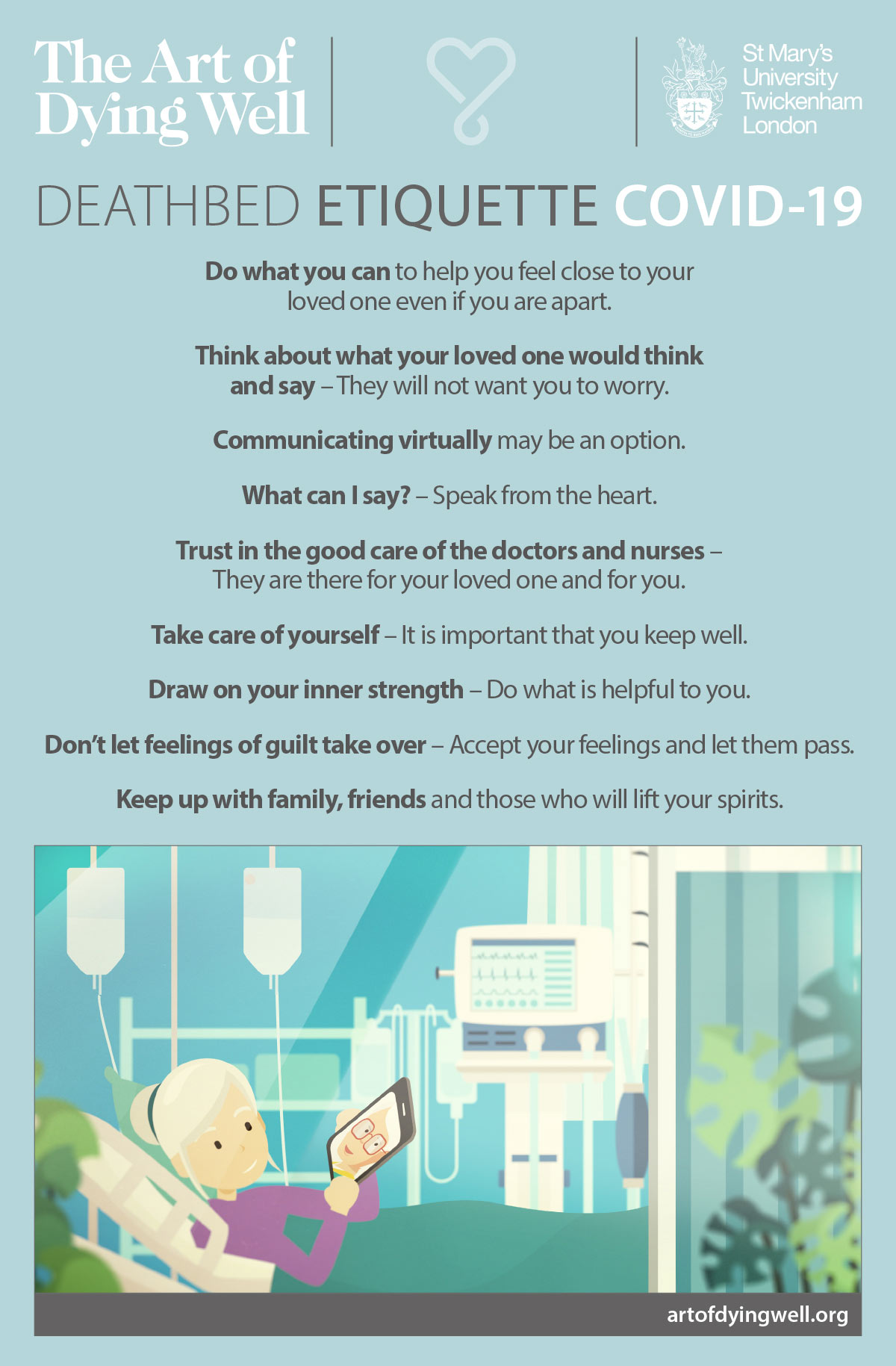LEICESTER, United Kingdom – One of the most difficult aspects of the current COVID-19 pandemic is the way it forces many people to die without their friends and family at their sides.
“I think it is really difficult, and I think what we’re finding is all of the things that are important; the physical presence; the touch; the being there and witnessing what’s going on; are all much more limited, and we’re having to almost look at what’s really core about those things and how we can do it differently,” said Dr. Jo Elverson, who works at St. Oswald’s hospice in Newcastle, in England.
This new reality is why a new “Guide to Deathbed Etiquette for COVID-19” was published by The Centre for the Art of Dying Well, a project of St Mary’s University, Twickenham. The project was established by the university to offer practical and spiritual support to those faced with the prospect of death and dying.
Margaret Doherty, the director of the center, told Crux they published the guidelines “to help those who are saying goodbye to a loved one in these most difficult of days,” and to try “to find new ways of accompaniment when the traditional ways may no longer be possible.”

Dr. Lynn Bassett, a retired hospital and hospice chaplain, said the etiquette guide could be summed up by “three quite simple things: The dying person, yourself, and then looking out towards friends and family.”
Elverson said that professionals are trying to make sure the dying can have people at their sides, but that the restrictions in place can make it difficult.
“For many of our patients the difficulty is that visitors may be unable to come in because they live in another part of the country, have to stay at home because they themselves have COVID-19 symptoms, or may be in a vulnerable group where they have been advised that the risk is too great,” she said.
Doherty noted that this is where modern technology has a role to play.
“Tablets, phones are having an important role to play in helping people communicate with their loved ones,” she told Crux. “It’s transformative if people are able to see and hear the people that they love.”
Dr. Amy Gadoud, a consultant at Trinity Hospice and Blackpool Teaching Hospitals noted this is not just an issue for those with COVID-19: “If people are dying of some other disease at this time, it’s possible that one relative may be allowed into the hospital or care home. It’s possible. It’s also possible you may not.”
Gadoud said that there is “no right or wrong way” of dealing with dying loved ones during the pandemic, adding people need to be “really just to be guided by the relationship you’ve always had with that person, and to do things that you always would, and so try – even though it’s such a difficult time – to maintain that relationship that you’ve always had.”
“There’s two different scenarios, probably, to think about. One is, is someone dying at home? And in those situations, we can say that touch might well be appropriate, with the sort of safeguards of good hygiene and using appropriate equipment that you’ll be changing using. So, not to say no touch, but just to say it would be different,” she said.
“But we also have the incredibly difficult scenario of people in hospital, where very difficult decisions have been made that visiting is not going to be possible in a lot of situations; and then we really are saying there’s no touch, or face-to-face contact.”
But Gadoud insisted: “Healthcare professionals are never going to desert the dying.”
“So the contact would still be there, it might be a little bit different in that they might have to wear a face mask and the equipment you might have seen on the television, but they will be there, and the contact will be there,” she said.
Doherty said she hoped that after the present crisis ends, people will begin to think about what they need to do before they die.
“I think we need to grasp the nettle and open up the conversations around death and dying; to settle our affairs, to look at the kind of life we want to live and to say ‘thank you, I love you and I’m sorry’ to the people that we love now, not to put it off to tomorrow,” she said.
Follow Charles Collins on Twitter: @CharlesinRome
















